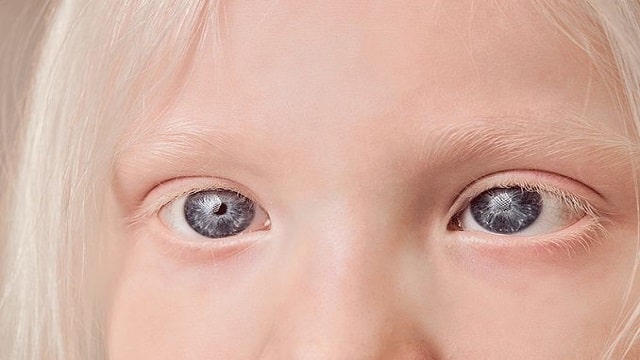Normally, everyone has different skin colors. However, not for someone with albinism. Albinism causes someone to be born without pigment or color. The body of someone with albinism cannot produce melanin in normal amounts. Melanin is a type of chemical contained in the body to give color to the eyes, skin, and hair.
This makes people with albinism different from people in general because they have very pale skin, hair, and eyes. In addition to not having pigment, people with albinism are thought to be at risk of experiencing visual impairment. Why can this happen? Here’s the explanation.
Is it true that albinism causes vision problems?
People with albinism who experience visual impairment fall into the ocular albinism group. This type of albinism is characterized by bluish eyes. Some people with ocular albinism have little iris pigment so their eyes appear pink or reddish. This reddish color is actually the blood vessels of the eye that are visible through the iris.
Nearsightedness or astigmatism is a common vision problem experienced by people with albinism. Glasses or contact lenses are often the treatment of choice to correct this vision problem. More severe nearsightedness may require eye surgery.
Additionally, people with albinism can be very sensitive to light because their irises do not have enough pigment to protect the retina. This is usually treated by wearing sunglasses or contact lenses when exposed to sunlight.
The following are symptoms of vision problems that can be experienced by people with albinism:
- Eyes move back and forth very quickly and involuntarily (nystagmus)
- Head movements, such as shaking or tilting the head to reduce involuntary eye movements and see better.
- Both eyes are unable to point to the same point or move simultaneously (strabismus).
- Mild to extreme near-sightedness.
- Sensitivity to light (photophobia).
- Abnormal curvature of the front surface of the eye or the lens inside the eye (astigmatism).
- Abnormal development of the retina.
- Nerve signals from the retina to the brain that do not follow the usual nerve pathways.
Can Albinism Be Cured?
Albinism is a genetic disorder. This means that the condition is present before birth, so there is no cure. However, there are treatment options available to help people with albinism with vision problems. Treatment may involve an ophthalmologist, dermatologist, and genetics.
During treatment, the doctor will need to test the eye condition annually. In general, vision problems are treated with corrective lenses prescribed by an eye doctor. If the sufferer has nystagmus, which is when the eyes move back and forth very quickly and involuntarily, the doctor may recommend surgery on the optic muscle to minimize the symptoms.
